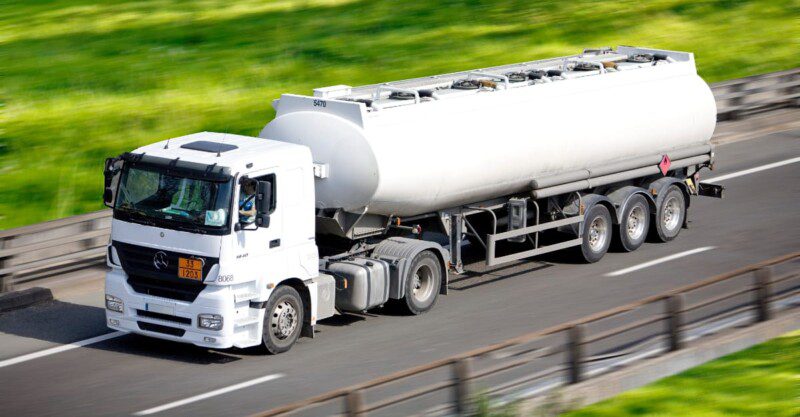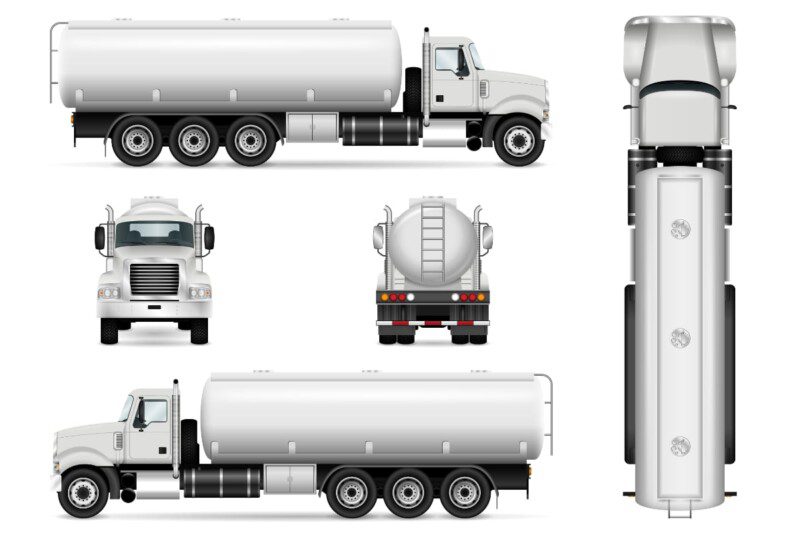Truck tanks typically refer to those used to store and transport liquids on trucks, such as fuel, water, chemicals, or other fluids. These tanks are designed to be durable, secure, and versatile, making them ideal for various applications. It can be made of different materials such as aluminum, stainless steel, or carbon steel and can have different shapes and sizes depending on the intended use and regulations.
Truck tanks will continue to be in demand globally due to increased economic activity, technological advances, and rising oil, gas, and chemical production and trading. Nowadays, more and more industries require truck tank services.
If you want to find out more about the industries that rely on truck tanks to keep their operations running smoothly, check out the list below.
1. Gas And Oil Industry
The largest user of truck tanks is the gas and oil industry. These tanks store and transport natural gas, refined petroleum products, and crude oil. In addition to transporting water, sand, and other materials, hydraulic fracturing uses them to extract oil and gas from deep underground formations.
There is a reason why truck tanks are used in the oil and gas industry. They are designed to endure harsh conditions. It’s necessary to ensure they can withstand high temperatures, pressures, and corrosive substances. Furthermore, they must be capable of safely and efficiently transporting large volumes of liquid or gas.
2. Chemical Industry
The chemical industry also relies heavily on truck tanks for transportation and storage. A truck tank in the chemical industry typically refers to a specialized tanker truck for transporting hazardous chemicals, liquids such as acids, solvents, and flammable liquids or gases from one location to another.
These truck tanks are designed to ensure the safe transportation of these chemicals by minimizing the risk of leaks, spills, and other accidents.
Truck tanks used in the chemical industry are typically made of materials compatible with the chemicals they transport, such as stainless steel or other corrosion-resistant alloys. They also have specialized valves, fittings, and seals to prevent leaks.
In addition, truck tanks used in the chemical industry are subject to various regulations and safety standards, including those established by the Department of Transportation (DOT) and the Occupational Safety and Health Administration (OSHA), to ensure that they meet stringent safety requirements. Regular maintenance and inspections are also required to ensure these trucks remain in good condition and safely transport chemicals.
3. Agriculture Industry
The agricultural sector also uses truck tanks for storage and transportation. These tanks transfer supplies necessary for growing crops, such as water, fertilizer, and other materials. The difficulties of off-road driving and the rigorous use that comes with farming activities must be able to endure truck tanks utilized in the agricultural sector. They must also safely and effectively transport a significant amount of liquid or gas.
To ensure the secure handling and transportation of agricultural chemicals, the agricultural sector also has rules and standards that must be adhered to. For example, in the United States, the Environmental Protection Agency (EPA) controls the storage and transportation of pesticides and other agricultural chemicals to prevent environmental contamination and protect public safety.

4. Food And Beverage Industry
Truck tanks are often used in the food and beverage business to transport liquids such as milk, juice, beer, and other food-grade drinks from one location to another. These truck tanks follow industry norms and requirements to ensure food products are transported safely.
Food-grade truck tanks are usually built of corrosion-resistant stainless steel or other materials that are easy to clean. Additionally, the tanks are made with polished, slick surfaces to prevent the accumulation of bacteria or other residues that can degrade the quality of the final product.
Moreover, food-grade truck tanks must be equipped with unique elements like insulation to preserve the temperature of the cargo as well as pumps, valves, and other fittings intended to stop leaks and spills.
To ensure the safe transportation of food products, the food and beverage industry also has rules and standards that must be adhered to. These laws mandate the use of food-grade materials and equipment and standards for cleanliness and hygiene.
5. Construction Industry
Truck tanks are also used for storage and transportation in the construction sector. These tanks transport water, gasoline, and other commodities to job sites. Moreover, dangerous materials like chemicals and flammable liquids are also transported using them.
The rugged terrain and heavy use that come with construction operations must be able to resist truck tanks used in the sector. They must also be constructed from materials compatible with the conveyed materials to avoid spills or leaks.
6. Sewage And Water Cleaning Business
Truck tanks are also commonly used in sewage and wastewater cleaning to transport and store liquids such as sewage, wastewater, and sludge. These tanks are designed to be durable and reliable while meeting specific industry standards and regulations.
Truck tanks are essential to the sewage and wastewater treatment sector because they offer a secure and effective way to move and dispose of waste while safeguarding the environment and general welfare.
In Conclusion
Truck tanks are a crucial component of many industries. They provide a safe and efficient way to transport and store liquids and gases, making them an essential tool for businesses that rely on these materials. With the right design and construction, these tanks can meet the unique needs of any industry, providing a valuable service to businesses worldwide.



